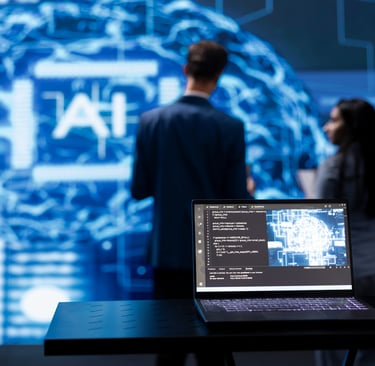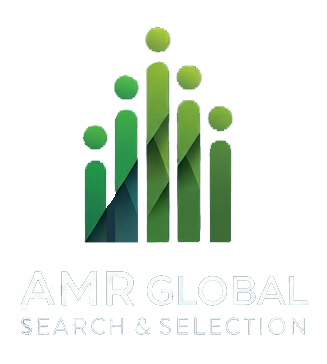Your Next Chapter Starts Here
The Role of AI and Automation in Recruitment
It's 2024 and the era of AI has already begun!
10/22/20242 min read


In recent years, the recruitment industry has undergone a significant transformation, with Artificial Intelligence (AI) and automation playing pivotal roles in streamlining and enhancing the hiring process. As companies continue to evolve, leveraging technology in recruitment has become essential for staying competitive and attracting top talent.
Below are key points on how AI and automation are reshaping the recruitment landscape:
1. Efficient Candidate Sourcing
AI-driven tools can scan thousands of profiles in seconds, identifying the most relevant candidates based on specific criteria such as skills, experience, and qualifications. Automation allows recruiters to reach a broader pool of talent without manual effort, ensuring faster and more accurate candidate matching.
2. Improved Candidate Screening
AI-powered screening tools can automatically filter resumes, highlighting the best candidates for further evaluation. By analysing keywords, past experiences, and qualifications, AI reduces human bias and shortens the time spent reviewing applications. This leads to more objective and efficient decision-making in the initial stages of recruitment.
3. Enhanced Candidate Engagement
Automation in recruitment allows for personalised communication with candidates at various stages of the hiring process. Automated emails, interview scheduling, and updates ensure that candidates are kept informed, improving their overall experience. Chatbots, driven by AI, can also assist with answering basic candidate inquiries 24/7, ensuring a responsive recruitment process.
4. Predictive Analytics in Hiring
AI can analyse historical data to predict future hiring needs and trends. This predictive capability helps recruiters anticipate skill gaps, enabling them to plan and act proactively. AI can also identify patterns in successful hires, refining future talent acquisition strategies by focusing on traits and experiences that correlate with high-performing employees.
5. Bias Reduction
One of the biggest challenges in recruitment is unconscious bias. AI, when programmed correctly, can help reduce bias by focusing purely on the qualifications and skills of a candidate, rather than their demographic details. This ensures that companies can foster a more diverse and inclusive workforce.
6. Optimised Candidate Matching
AI uses advanced algorithms to match candidates with roles based on not only their resumes but also their behavioural patterns, cultural fit, and potential for growth. This goes beyond traditional hiring methods, allowing companies to find candidates who are more likely to succeed in the long term.
7. Data-Driven Decision Making
AI tools provide real-time analytics and insights that help recruiters make informed decisions. From measuring recruitment KPIs to tracking candidate engagement, AI offers valuable data that can optimise the entire recruitment process. This data-driven approach leads to better hiring decisions and improved performance outcomes.
8. Time and Cost Efficiency
By automating repetitive tasks such as screening resumes, scheduling interviews, and sending notifications, AI significantly reduces the time and costs associated with recruitment. This allows HR teams to focus on more strategic aspects of talent acquisition, such as relationship-building and long-term planning.
9. Scalability for High-Volume Recruitment
AI and automation are particularly beneficial for large-scale hiring initiatives. Whether it’s seasonal hiring or rapid business expansion, AI can handle a large volume of candidates efficiently, ensuring that even high-demand roles are filled quickly without compromising on quality.
10. Continuous Learning and Improvement
AI systems continuously learn from each recruitment cycle, refining their algorithms to improve future performance. This means that over time, AI tools become more accurate and effective, helping companies build stronger talent pipelines and improving overall hiring outcomes.
Conclusion
AI and automation are transforming recruitment, enabling companies to source, screen, and hire talent more effectively and efficiently. By reducing manual tasks, minimising bias, and enhancing candidate engagement, these technologies provide recruiters with the tools they need to stay competitive in today’s fast-paced hiring landscape.
As AI continues to evolve, its impact on recruitment will only grow, making it an indispensable part of modern talent acquisition strategies.
AMR Global
Global leaders trust our search and selection expertise.
Reach out to us on
+44 7709 869 000
AMR Global © 2025. All rights reserved.


